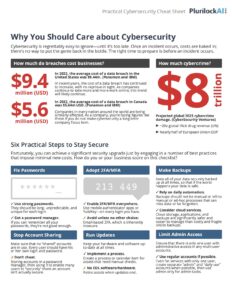In the rapidly evolving landscape of cybersecurity, one of the foundational aspects that stands as a crucial defense mechanism is password hygiene. As technology advances, so do the methods employed by cybercriminals to breach systems and compromise sensitive information. Passwords, being the primary line of defense for most digital accounts, play a pivotal role in safeguarding data and preventing unauthorized access. This deep dive will explore what password hygiene entails, why it matters in the realm of cybersecurity, and provide an in-depth analysis of its importance.
Understanding Password Hygiene
Password hygiene refers to the practices and measures individuals and organizations employ to create, manage, and protect their passwords. It encompasses a set of guidelines and best practices aimed at reducing the risk of unauthorized access, data breaches, and identity theft. Key components of password hygiene include password complexity, uniqueness, regular updates, secure storage, and the use of multi-factor authentication.
- Password Complexity: Passwords should be complex and not easily guessable. A strong password typically includes a combination of uppercase and lowercase letters, numbers, and special characters. This complexity acts as a deterrent to brute force attacks, where attackers attempt to gain access by systematically trying all possible combinations.
- Password Uniqueness: Reusing passwords across multiple accounts is a common and dangerous practice. If one account is compromised, the attacker gains access to other accounts using the same credentials. Password hygiene encourages the use of unique passwords for each account, reducing the potential impact of a security breach.
- Regular Updates: Passwords should be regularly updated to mitigate the risks associated with compromised credentials. Regular changes make it harder for attackers to maintain unauthorized access over an extended period. It is recommended to update passwords at least every three to six months, depending on the sensitivity of the account.
- Secure Storage: Storing passwords securely is fundamental to password hygiene. Passwords should never be written down in an easily accessible location or shared openly. The use of password managers, encrypted storage, and secure vaults enhances the protection of sensitive credentials.
- Multi-Factor Authentication (MFA): Multi-factor authentication adds an additional layer of security by requiring users to provide multiple forms of identification before gaining access. This could include a combination of something the user knows (password), something the user has (smartphone or token), or something the user is (biometrics). Implementing MFA significantly enhances the security posture and makes it more challenging for unauthorized individuals to breach an account.
Why Password Hygiene Matters
Password hygiene is not merely a set of recommendations; it is a cornerstone of cybersecurity with far-reaching implications. Understanding why password hygiene matters is crucial for individuals, businesses, and organizations as they navigate an increasingly digitized world.
- Preventing Unauthorized Access: The primary objective of password hygiene is to prevent unauthorized access to sensitive information. Inadequate password practices can lead to unauthorized individuals gaining entry to personal accounts, corporate networks, or critical systems, resulting in data breaches and financial losses.
- Protecting Personal and Financial Information: Individuals often overlook the importance of strong passwords for personal accounts, including email, banking, and social media. Compromised personal accounts can lead to identity theft, financial fraud, and the unauthorized access to sensitive personal information. Password hygiene serves as a shield against such cyber threats.
- Safeguarding Corporate Networks: In a corporate setting, where vast amounts of sensitive data are stored and processed, password hygiene is paramount. Weak passwords or lax practices can open the door for cybercriminals to infiltrate corporate networks, leading to intellectual property theft, business disruption, and reputational damage.
- Mitigating the Risk of Data Breaches: Password-related breaches are a common avenue for cybercriminals to gain unauthorized access to databases containing sensitive information. Proper password hygiene practices significantly reduce the risk of data breaches, limiting the potential impact on individuals, organizations, and the broader ecosystem.
- Compliance and Regulatory Requirements: Many industries and jurisdictions have specific cybersecurity regulations and compliance standards that mandate the implementation of robust password hygiene practices. Non-compliance may lead to legal consequences, fines, and reputational damage.
In-Depth Analysis of Password Hygiene Importance
- Human Factor and Behavioral Patterns: Password hygiene is not solely a technological consideration; it involves human behavior and adherence to security practices. Analyzing the human factor reveals that individuals often exhibit predictable patterns in creating and managing passwords. Cybersecurity education and awareness campaigns are essential to address these patterns and foster a culture of security-conscious behavior.
- Emerging Threat Landscape: The threat landscape in cybersecurity is dynamic, with attackers constantly evolving their tactics. As technologies like artificial intelligence and machine learning become more prevalent, cybercriminals leverage sophisticated methods to exploit vulnerabilities. Password hygiene serves as a foundational defense against both traditional and emerging threats.
- Social Engineering and Password Attacks: Social engineering attacks, where attackers manipulate individuals into divulging sensitive information, often target weak passwords. Understanding common social engineering tactics, such as phishing and pretexting, is crucial for reinforcing password hygiene. By educating users about these threats, organizations can enhance their overall security posture.
- The Role of Technology in Password Security: Technology plays a pivotal role in advancing password security. The use of biometrics, advanced encryption algorithms, and secure authentication protocols contribute to the overall effectiveness of password hygiene. Continuous innovation in authentication technologies ensures that password security remains resilient against evolving threats.
- Integration with Identity and Access Management (IAM): Password hygiene is closely intertwined with Identity and Access Management (IAM) systems. IAM solutions help organizations enforce policies, manage user identities, and ensure secure access to resources. Integrating password hygiene practices within IAM frameworks strengthens overall security controls and reduces the risk of unauthorized access.
- User Experience and Usability: Striking a balance between security and user experience is crucial in promoting widespread adoption of password hygiene practices. User-friendly authentication methods, intuitive password reset processes, and seamless integration with applications contribute to a positive user experience, encouraging individuals to adhere to secure password practices.
Conclusion
In conclusion, password hygiene is a foundational element of cybersecurity, serving as a critical defense against unauthorized access, data breaches, and identity theft. The multifaceted nature of password hygiene, encompassing complexity, uniqueness, regular updates, secure storage, and multi-factor authentication, reflects its comprehensive approach to safeguarding digital assets.
Understanding the importance of password hygiene is essential for individuals, businesses, and organizations as they navigate an increasingly interconnected and digitized world. The human factor, emerging threat landscape, social engineering tactics, technological advancements, and integration with IAM systems all contribute to the significance of password hygiene in securing digital identities and sensitive information.
As cybersecurity continues to evolve, the emphasis on password hygiene remains unwavering. Continuous education, technological innovation, and a proactive approach to addressing vulnerabilities are essential components of a robust password hygiene strategy. By prioritizing and implementing effective password hygiene practices, individuals and organizations can fortify their defenses and contribute to a more secure digital ecosystem.





